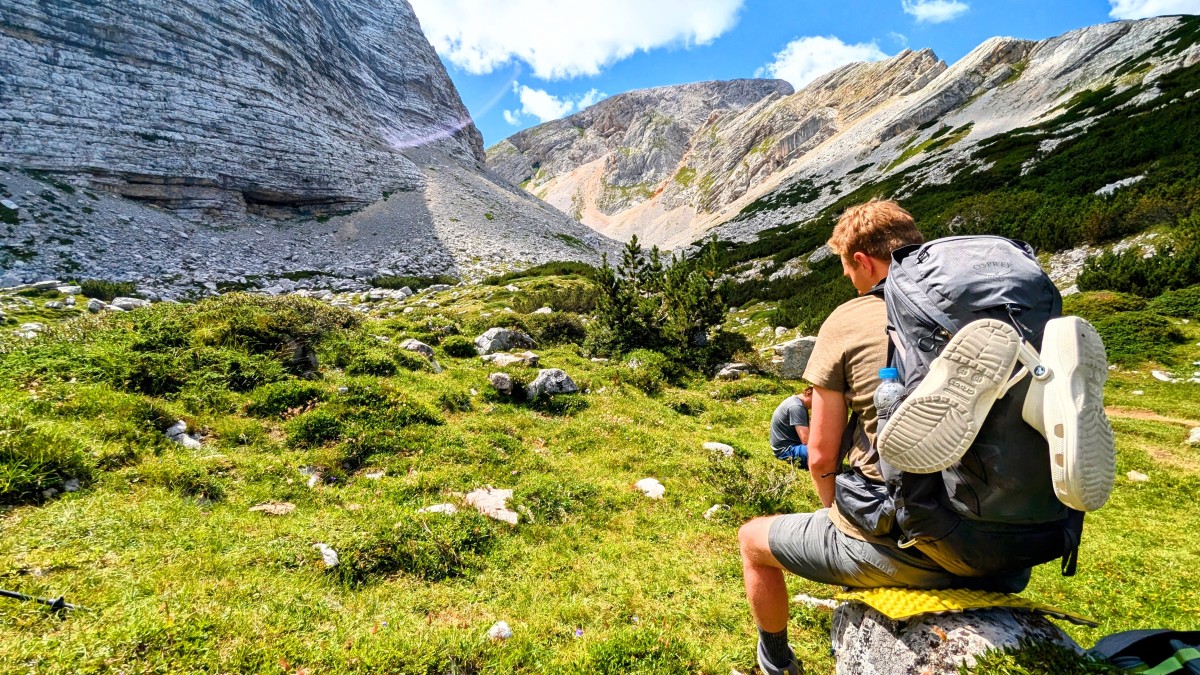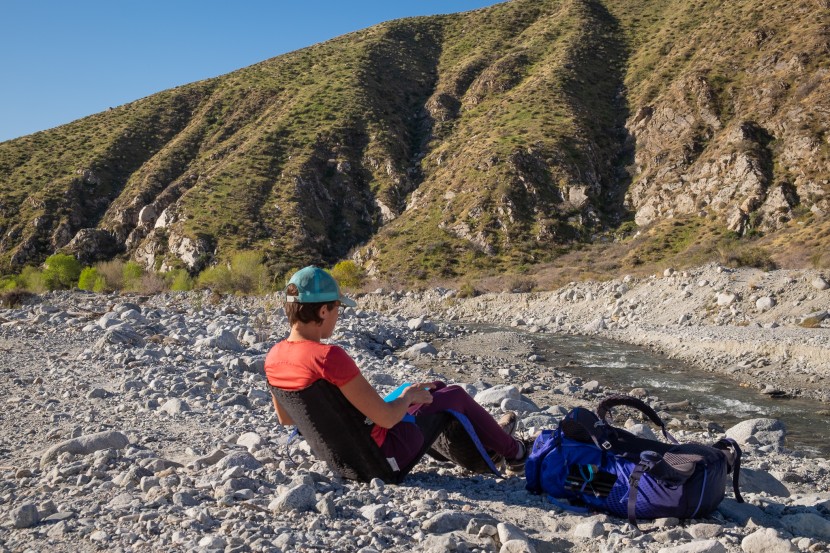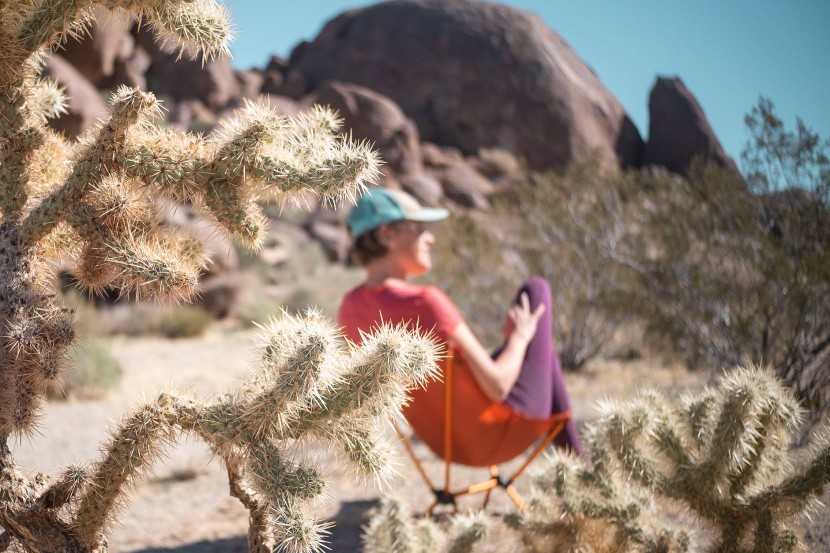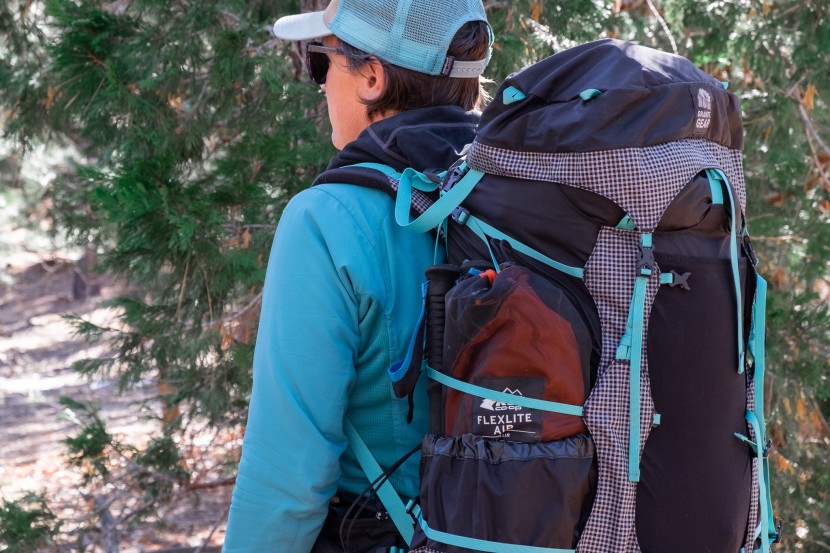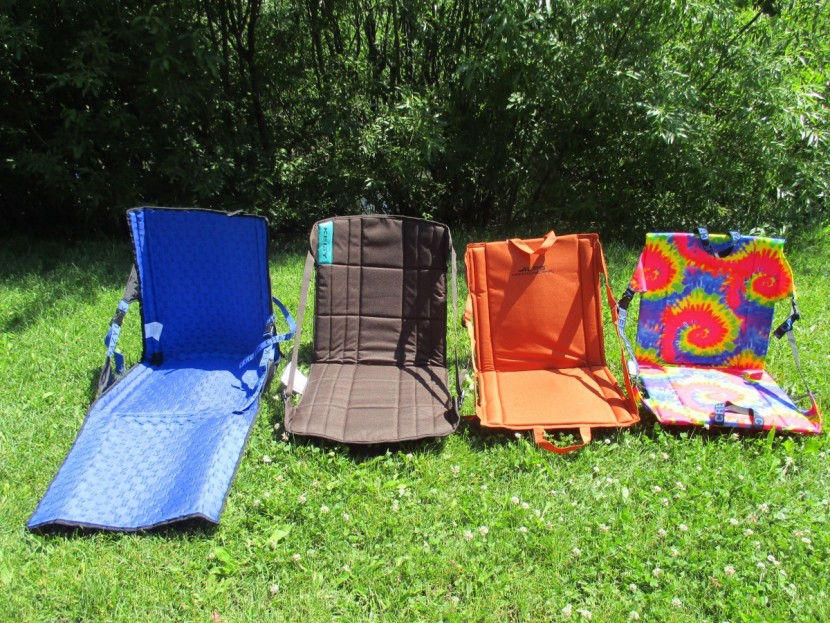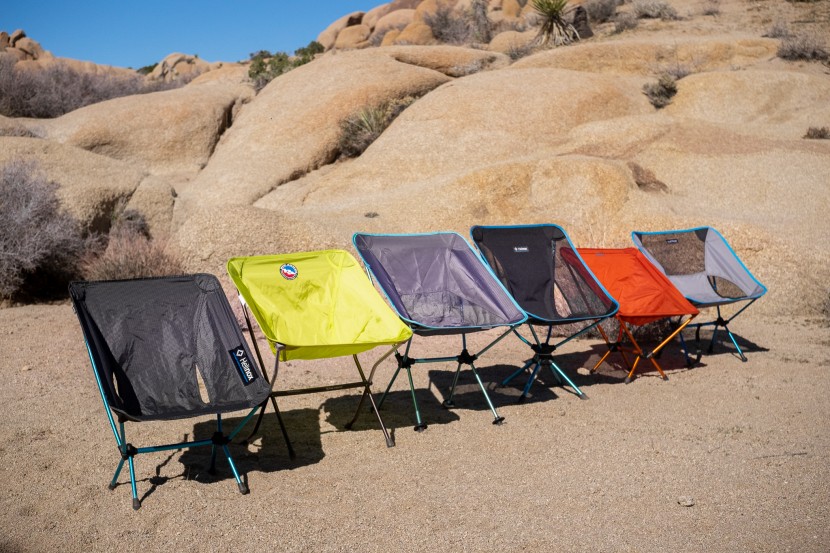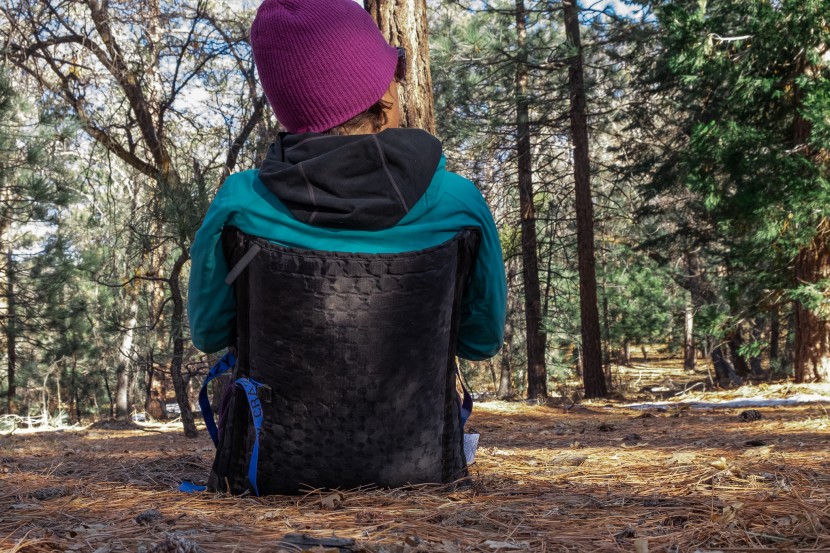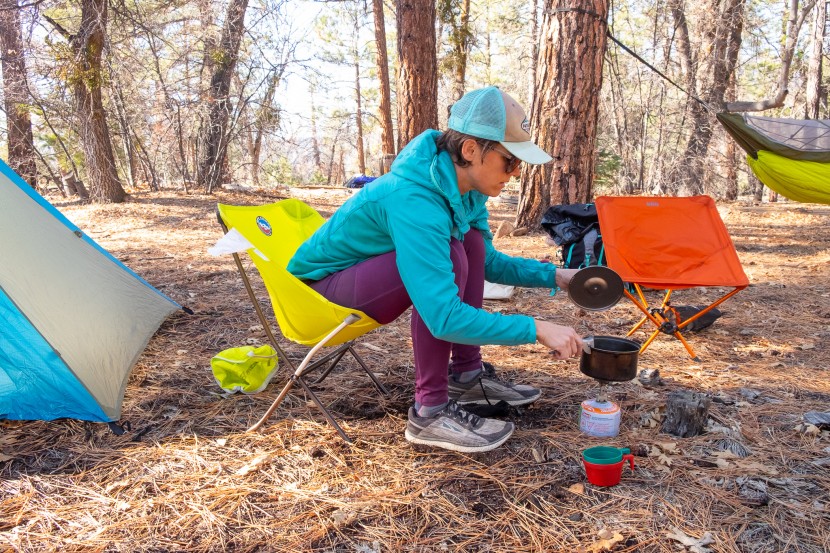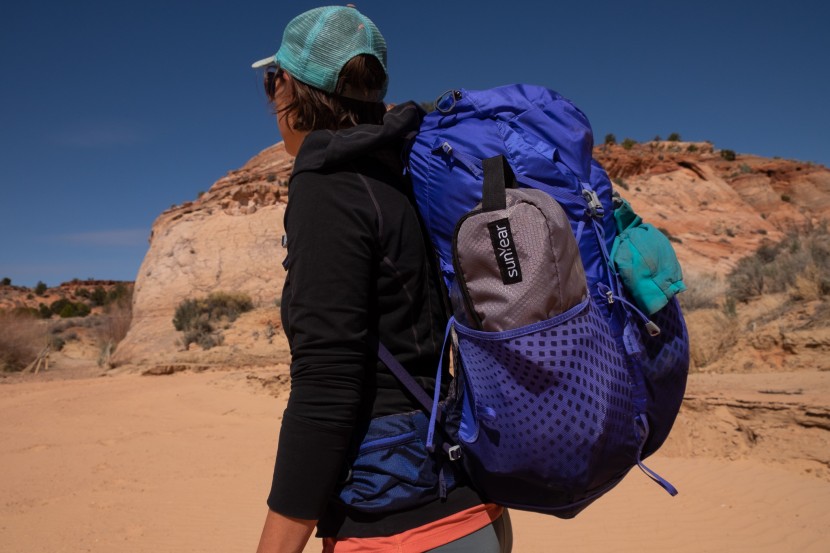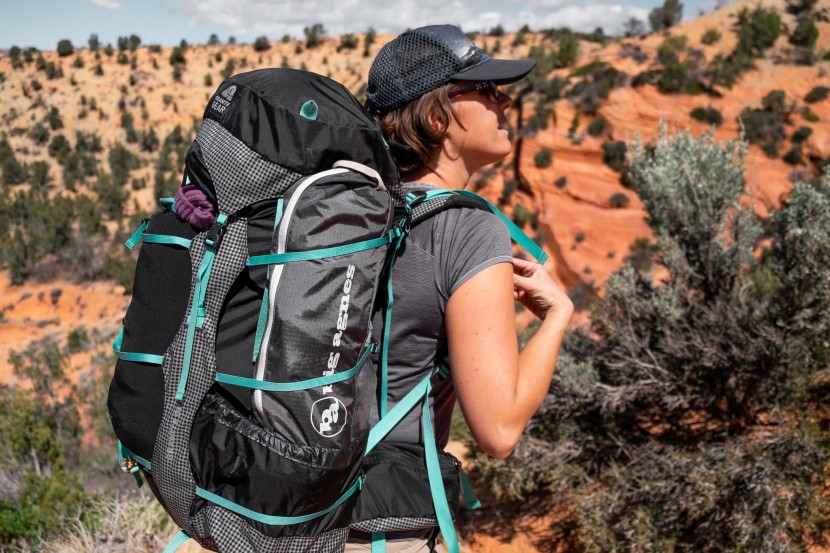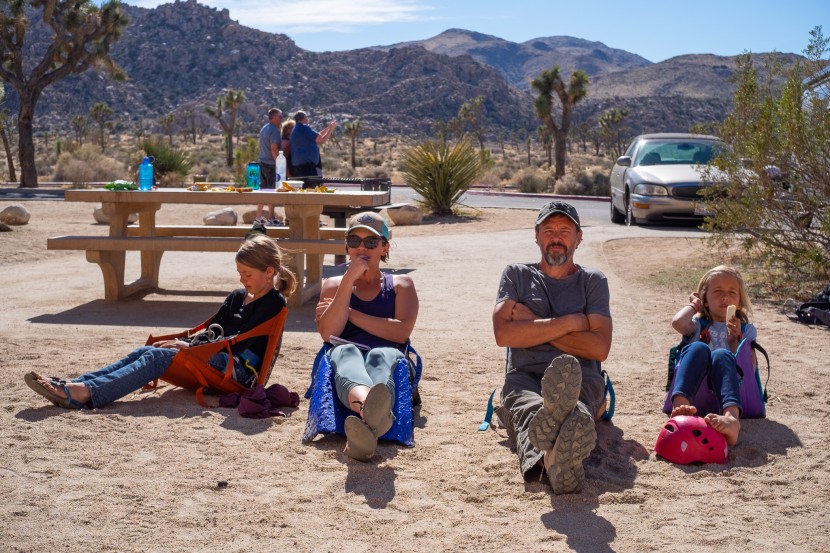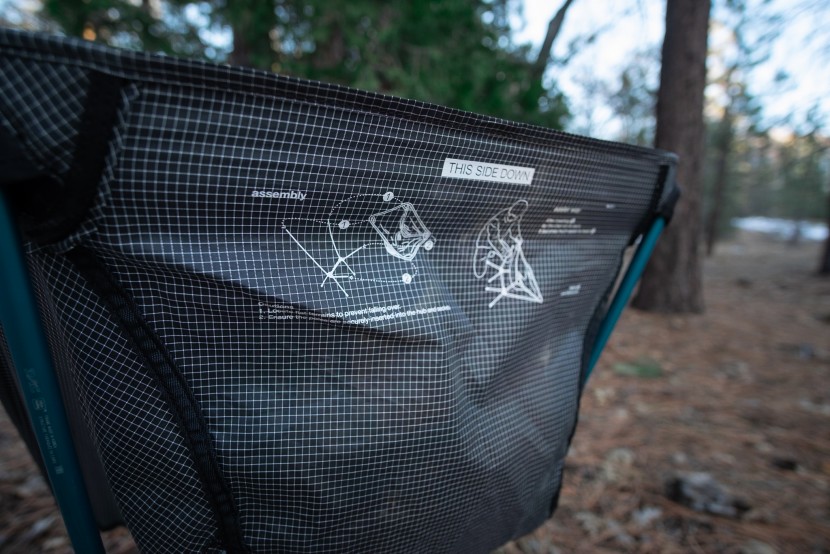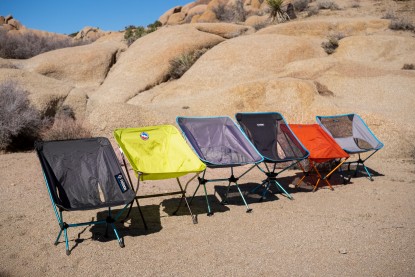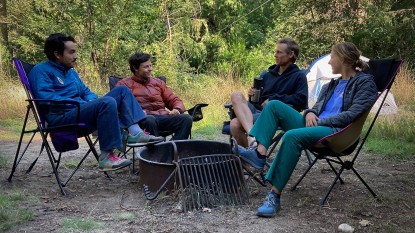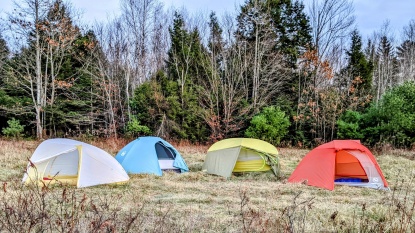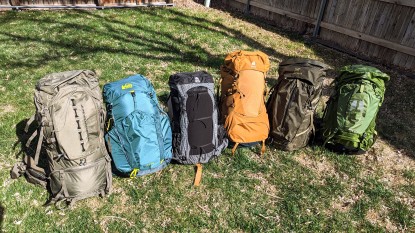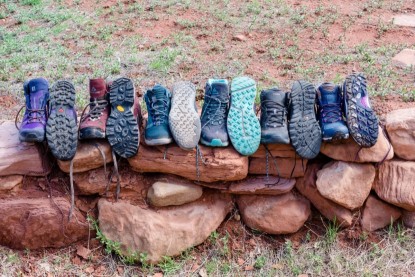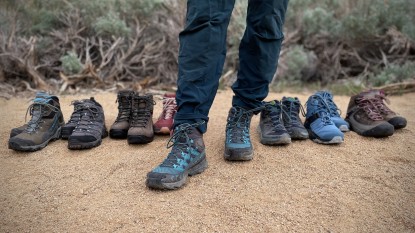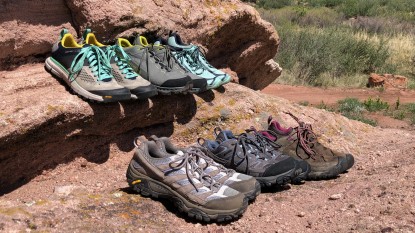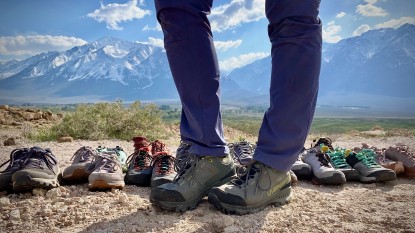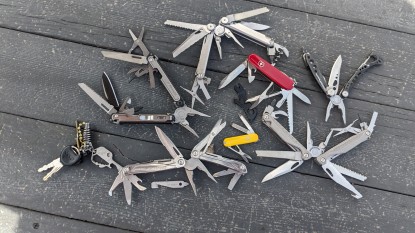Here at GearLab, we believe adventure is as much about sitting back and enjoying the view as it is about logging miles and ticking off classic routes. Some of us were a little hesitant to pack the extra weight of a backpacking chair in our already loaded packs, but after some comfy evenings at camp, we aren't sure we could go back to sitting on the ground.
Do I Need a Backpacking Chair?
Just because a piece of equipment will make you more comfortable doesn't mean you have to have it or even want to carry the extra weight. There's nothing wrong with a log or nicely shaped rock in the backcountry. But, like rolling up your puffy jacket to use as a pillow, nothing replaces the comfort of the real thing. It'll be up to you to decide if you can justify the weight or price of adding a luxury item.
For some, a chair might be a bonus item, but for others, sitting on the ground is just not going to happen. If you have tight hips or lower back, you may not be able to get even a little bit comfortable on the ground to cook a meal or relax at camp. If this is you, a real seat could be the difference between just tolerating camp and thoroughly enjoying it.
Another scenario in which we found backpacking chairs to be more than a luxury was at wet campsites. Have you heard of "Vermud"? Certain trails just never seem to dry out; other times, you are heading out on a trip during the spring snowmelt, and time at camp either consists of standing, laying in the tent, or dealing with a perpetually damp bum.
Or maybe you prefer the style of travel where you take breaks at every beautiful view and aren't interested in covering big miles. On solo trips, where extended reading breaks are a likelihood, an extra pound may matter less to you than having the equipment to get comfortable and take it all in.
Conversely, someone who is counting every ounce is unlikely to want to add even a few extra ounces. If you are putting in big miles — hiking from sun up to sun down daily — camp time is likely going to consist of wolfing down some calories before crashing in the tent. For you, a simple and versatile ground pad weighing only a couple of ounces is likely more up your alley than a proper chair.
There are many styles of lightweight, packable chairs on the market right now, and we put a sizeable handful of them to the test. Read on to learn more about what styles are out there and how you might go about narrowing down the diverse selection on the market.
If you don't need something overly small and light, take a look at our regular camping chair review, which includes full-size chairs perfect for tailgating and car camping.
Types of Chairs
Foam Chairs
For this review, we included chairs of two different categories: foam and tent-style with poles. Some of the foam models are basic sit pads, while others that we will call “taco-style” add in a backrest. The simple ground pads are going to be your lightest option but offer the least in the way of support and features. Their main purpose is to offer a waterproof, insulated, and padded place to park it on the ground.
Taco-style chairs are easily recognizable. They have a straightforward design: a folding, L-shaped piece of fabric with internal closed-cell foam and support beams. You lean back and use the opposing force of your legs and back to create a seat. Taco-style chairs sit directly on the ground and are generally light, virtually indestructible, and are great for quickly grabbing off your pack and plopping down as they require no setup. Don't get too relaxed, though; these chairs require some level of muscle engagement to use and aren't the easiest things to get out of.
Both types of foam chairs are usually on the lower end of the price spectrum for backpacking chairs and can be a good option if you're newer to camping and not sure whether you'll want to have a chair with you or not. The ultra-light ground pads are also an excellent option for those who are counting every ounce and would otherwise never allow themselves to justify carrying a seat.
Tent-Style
The tent-style chairs in this review are named for the folding, tent-like poles that hold them up. A fabric seat lets your bottom hang suspended between the chair's frame. Models in this review will usually place your bum between 7 and 12 inches above the ground, and they are often much more comfortable than foam chairs. However, they are more expensive and, in some cases, heavier. We were excited to use these chairs anywhere and everywhere, from backcountry excursions to car camping cookouts and days at the crag.
Uses and Versatility
Even though this review is geared toward options for backpacking, we recognize that chairs can bring an elevated level of comfort to just about any activity. When investing in any new toy, it's nice when you can get use out of it in many aspects of your life.
Backpacking
Up first, backpacking. Weight is paramount here, so we'd recommend taking a glance at our Size & Weight Metric, as you'll likely be carrying your chair for miles. If it isn't under 2 pounds, most would be hard-pressed to want to keep it in their pack.
Many of the tent-style chairs in our review are still relatively lightweight and, believe it or not, can sometimes be lighter than any taco-style chair we tested.For true ounce-counters, the best option may be a simple foam pad seat. They weigh just ounces and offer enough comfort to be the difference between a miserable dinner with a cold, wet butt and enjoying some time by a campfire.
Travel & Car Camping
If you're staying in the front country, you may want to consider one of the larger chairs in our camping chairs review. If you have a small car, however, some of the backpacking chairs could serve as a great middle ground. Weight is much less important when traveling by vehicle, so we'd urge car campers to look more closely at the “comfort” and “ease of use” sections in each review.
Generally, chairs that fall into this category are larger and more comfortable. However, the trade-off for luxury is weight. These types of chairs are the heaviest chairs we tested.
Concerts
Outdoor concerts are one of the best parts of summer, and one way to make them even better is with a lightweight chair. Because outdoor venues often ban chairs with legs, any of the taco-style chairs in this review are perfect. Weight is less important for this type of event, so we'd recommend the most comfortable chair you can find. They generally sit directly on the ground, and they are easy to transport and reposition.
Purchasing Considerations
There are at least a dozen reasons to purchase a lightweight, portable camp chair. For each, different factors become more important. Here, we'll describe the four scoring metrics we used to evaluate each chair so that you can better focus on the ones that are most valuable to your decision-making process.
Comfort
The first and the most heavily weighted metric in our review, at 35%, is comfort. With some gear, comfort comes secondary to performance, but as far as chairs are concerned, it is the performance. Why lug an extra pound or two of chair around, whose sole purpose is to provide comfort, if it isn't actually comfortable? To evaluate each contender, we measured its height off the ground and the width of its seat. We also looked at and felt the shape of the seat pocket and evaluated how that affected the feel on our bottoms, backs, arms, and necks.
If weight isn't an issue, comfort will probably be your number one criterion when deciding what to buy. If, on the other hand, you need to be mindful of every ounce, you'll want to find something that strikes that perfect balance between how it feels and the extra weight you'll be strapping on your back. Overall, we found tent-style chairs to be more comfortable than foam chairs because you sit elevated off the ground. Typically, the higher you sit off the ground, the more comfortable and easier it is to get out of the chair — but with added height comes added weight as well. The shape and depth of the seat pocket also play a role in comfort.
Size & Weight
If you know that you're taking your chair far into the backcountry, you'll want to carry as little weight as possible and be able to easily strap the chair to the outside of your pack. This is likely the most important metric if you're shopping specifically for backpacking, bike-packing, or any long-distance human-powered travel.
Does this sound like you? If so, you'll be glad to know that we put each chair on a scale to get its exact travel weight and took measurements of the packed size. There are several chairs in this review that come in well under twenty ounces. Each has its own style and function, but any still fit the bill where weight and compact size are crucial. If you are looking into backpacking chairs as a more compact alternative to regular camp chairs, there are also larger models in this category that weigh a little more but still offer a middle-ground option that is tall and comfortable but lighter and more compact than traditional camp chairs.
Stability
When setting your chair up outdoors, you will inevitably encounter uneven ground. Our stability ratings are relative as most of these compact seats are decidedly less stable than their large counterparts designed for car camping. Some of the chairs we tested are firm and secure, while others feel like they're barely standing upright on teeny tiny legs that could tip at any moment. For tent-style chairs, a lighter weight almost always means smaller, less stable legs. Think about your personal stability when getting into and out of a squat. If you are perfectly comfortable doing this, a slightly less stable chair could allow you to save some weight. But if you struggle with balance in crouched positions, select a more stable chair that sits higher to keep you confident with your entry and exit.
Conversely, foam chairs are all relatively stable since they involve sitting on the ground with the full width of your bum providing the base. Some have a backrest that adjusts so that you can choose your angle of recline and stay upright with the oppositional force of the user's legs and torso — very different than the poles and tiny feet of tent-style models. You do have to use some muscle tension to stay balanced in this style, though, so full relaxation isn't possible. Others, which are simply a ground pad, are just as stable as the ground beneath them but do rely on your stability in getting on and off the ground. If a cross-legged or straight-legged sitting position on the ground is not comfortable for you, this style of chair may not add much to your outdoor relaxation.
Ease of Use
We found a noticeable difference in the ease of use between the models we tested. As we mentioned, the foam chairs require no setup and so excel in that arena, however they are a bit awkward to get in and out of since they rest on the ground and the taco-style models tend to fall closed when not occupied.
The most common design for tent-style seats is the use of a hub into which the poles are inserted. Just like with tent poles, the poles for these chairs are connected with a bungee-cord connection to make it quick and easy to pop each pole into place. Another factor in ease of use is how much force is required to put the seat material onto the pole tips. Most require some force but loosen up with use, while others use more densely woven fabrics that don't seem to stretch and are always tight to get on.
And then there is the matter of instructions. Some models we tested have color-coded poles and sleeves, so there is no question about which end is up. Others have instructions printed on the seat or bag, and some have none of these, leaving you to determine up from down by comfort and fit.
Conclusion
A small and light chair, whether you take it on every trip into the backcountry or just use it as a compact option to keep stashed in your car for tailgating, can be a handy and comfortable addition to your gear collection. But before buying one just because it's comfy and light, think about how you will use it to determine which one is right for you and if you really need it at all.

